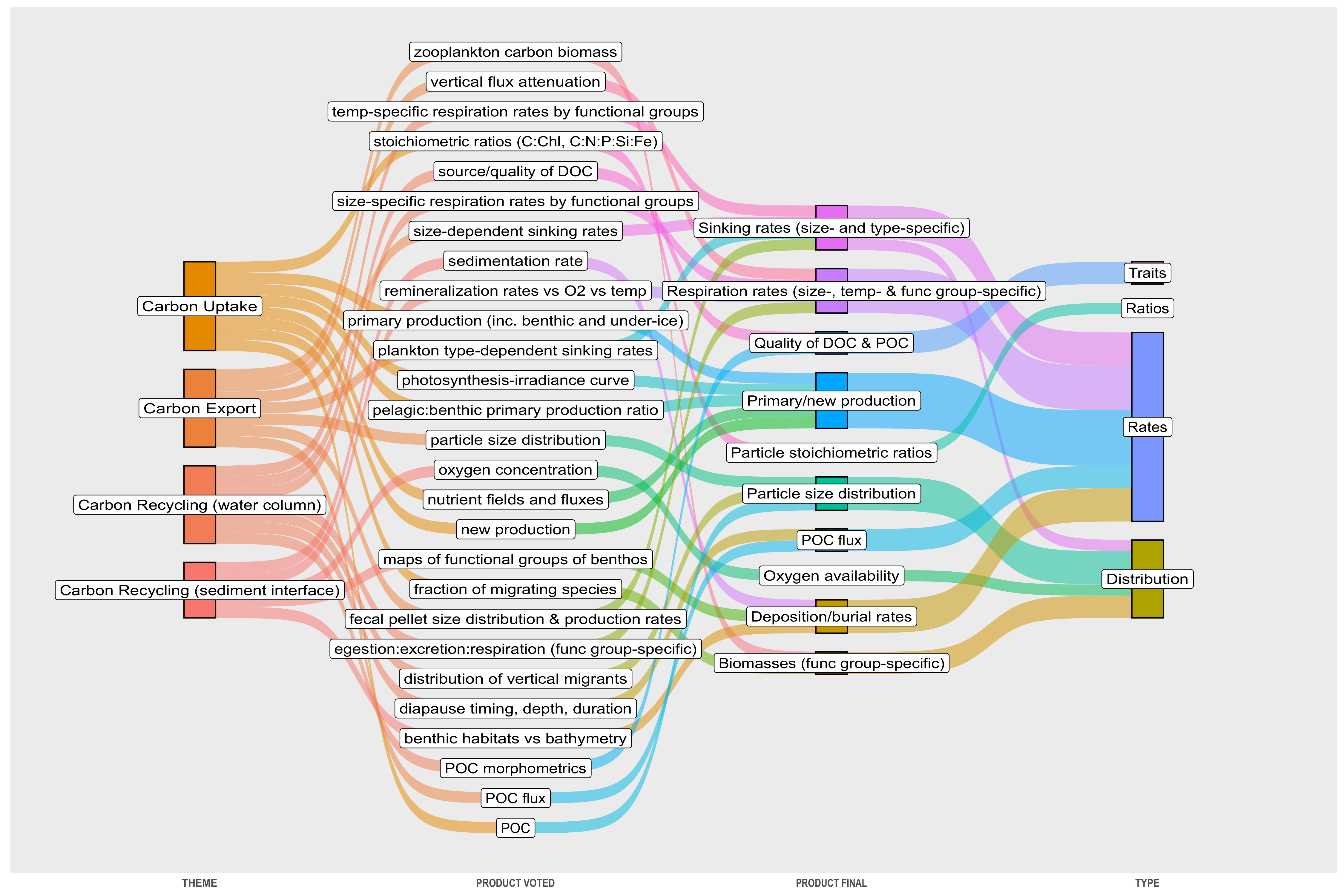Motivated by the calls for more integrated ocean carbon research, two EU-funded projects ECOTIP and EU4OceanObs have been supporting since early 2023 a multidisciplinary group of researchers in convening a new working group activity around ocean carbon sequestration data synthesis and modelling in the Arctic. Building on the results of an open community survey which engaged over sixty experts in Arctic carbon observations and modelling, both senior and early-career researchers from across Europe, North America and Asia, on 18-19 October 2023 the group organized an online workshop which gathered over 30 attendees tasked with identifying and designing biogenic data products to advance ocean carbon sequestration modelling in the Arctic. The event was also supported by the IOCCP, as part of the efforts to strengthen the integration across the biogeochemical modelling and observing interface.
During the first day of the workshop, the attendees were divided into four groups collaborating on the Miro.com platform, which provided a smooth and effective workflow in a fully online setting. Every group’s discussion was moderated by members of the organizing committee representing a mixture of expertise. According to the survey structure, all groups had an opportunity to discuss the importance of the relevant processes within the four selected themes: Carbon Uptake, Carbon Export, Carbon Recycling in the water column and Carbon Recycling in the benthic boundary layer and sea floor. The sessions concluded with voting on the proposed priority products to be discussed in detail the following day.
The second day started with the presentations of the chosen products, followed by continued work in three subgroups. The aim of the second day was to discuss certain products thoroughly, taking into consideration: data types/sources; existing sources of data; units; functional groups; product design ideas; confidence in observations; types of models to use; readiness to model; and related data products. As a result, three Miro boards were filled with detailed comments and valuable information for further proceedings.
The workshop ended with a plenary discussion of the group discussion outcomes which, pending further analysis, will inform a perspective article on the biogenic data products for advancing ocean carbon sequestration modelling in the Arctic, as well as follow-up activities leading to their implementation.
On behalf of the Organizing Committee:
James Bradley (Queen Mary University of London, UK), Nathan Briggs (NOC, UK), Stefano Ciavatta (MOi, France), Mattia Greco (CSIC, Spain), Maria Grigoratou (MOi, France), Monika Kędra (IOPAN, Poland), Marja Koski (DTU Aqua, Denmark), Dominik Krzymiński (IOPAN, Poland), Chris Lindemann (UiB, Norway), Artur Palacz (IOCCP/IOPAN, Poland), Andy Visser (DTU Aqua, Denmark), Ingrid Wiedmann (UiT, Norway), Veli Çağlar Yumruktepe (NERSC, Norway).






 Please wait...
Please wait...